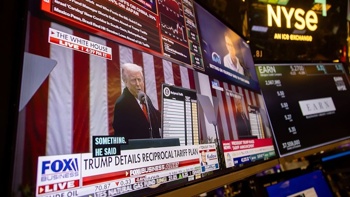An expert says apparent market manipulation by fuel companies in New Zealand is totally legal.
This comes after a leaked email has exposed the pricing strategy underpinning the petrol industry.
In the email obtained by Stuff, BP pricing manager Suzanne Lucas outlined a plan to counter dwindling sales in Ōtaki, where the price of fuel was 20 cents more expensive than in nearby town Levin.
Instead of reducing the price in Ōtaki to make the station more competitive, Lucas proposed an increase of the fuel price across the entire region, with the expectation that competitors would match the new price.
"We have already increased all three sites mentioned by 5cpl [cents per litre] and have found that the Z [Energy station] in Paraparaumu has already matched our pricing," Levin wrote.
"Over the next couple of weeks we will continue to try a number of tactics in the hope of reducing the pricing gap between Ōtaki and its surrounding regions."
Energy Minister Megan Woods and former energy minister Judith Collins both expressed to Stuff concern about the email, with the latter calling for a report to be conducted by the Ministry of Business, Innovation and Employment.
However, AA's Mark Stockdale told Mike Hosking it's a deregulated market so there's nothing saying the fuel must be a certain price.
"We've monitored the price on the basis of what it's costing to import the fuel at a certain margin, but that margin, it varies substantially depending on the price that they are charging, and it varies across the country largely due to competition."
The Ministry of Business, Innovation and Employment last year released a report on fuel prices, saying it had "reason to believe" the market was not fully competitive and that fuel prices were unreasonable.
It said that since 2008, New Zealand pre-tax premium petrol prices had soared from the "bottom third of OECD countries" to become the "most expensive". The swing amounted to a "wealth transfer from consumers to producers, increasing the effective living costs of motorists".
Due to these concerns raised in this report, the Government said it was looking into giving the Commerce Commission more power to investigate petrol companies and the high prices they charge.
As part of the proposed law changes, the Commerce Commission may be able to investigate collusion among petrol companies after the report showed a massive swing in fuel prices in the past decade, transferring hundreds of millions of dollars a year from motorists to petrol companies.
That would require an amendment to the Commerce Act so the commission could force companies to comply.
The latest revelation of BP's pricing strategy in Lower North Island again raises the question of whether New Zealanders are really getting a fair deal at the pump.
LISTEN TO MARK STOCKDALE TALK WITH MIKE HOSKING ABOVE
Take your Radio, Podcasts and Music with you









